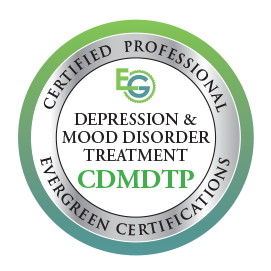Bipolar Depression, Manic depression Psychotherapy and Counselling
Bipolar depression is a form of mental health condition where the person suffers states of depression, and states of elevated mood which may start in a pleasant way, but which rapidly become agitated and disjointed. Historically sufferers have been categorized as Bipolar I, II or rapid cycling. However more and more it is being realized that neat categorizing is impossible, and even if the “type” is captured in initial diagnosis, it may vary considerably over time.
“I do not see the point in carrying on”
“I can’t see the point anymore”
“People would be better off without me”
“if I was gone my partner would be better off with someone else”
“My mood is all over the place”
“I get a lot of depression, but sometimes I am just mad happy!”
“I can be super crazy sometimes, which is a real break from the depression”
“I can go from suicidal to dancing on the table”
“Being nuts happy is the only break I get from the sadness”
“I go from being down to shopping over the top online to cheer up”
“When I have had enough I just go on a bender to escape from it all and act up”
My job as a therapist is to help you manage these states, stabilise your life, learn new ways of living and move on from your old habits.
Other problems present with Bipolar depression
Some estimates claim a third of bipolar sufferers also have OCD (obsessive compulsive disorder), usually presenting as obsessive thoughts, rather than actions.
Co-morbidity is a recognised major problem in mental health, where a mental health condition does not exist alone, but has another factor present as well. A classic Bipolar co-morbidity is with addiction. Historically this has been perceived as the personal with mental health problems slipping into further chaos in a weak minded way. Crucially there is a far more important factor actually at work. Mal-adaptive oping mechanisms like the consumption of alcohol can lead to addiction and co-morbidity in the long term, but usually result from an attempt to cope and “self medicate” in the short term. Thus a short term “fix” becomes a long term chaotic problem.
Serious anxiety is often present in Bipolar. Historically this has been considered to be part of the “up” or elevated state. However it is often seen in the depressed state, where the sufferer experiences both depression and feelings of fear or anxiety at the same time.
Mixed states often occur when a number of emotions collide, and this creates a painful state of chaos, often characterized by anger, aggression and self isolation. These states often occur when a state change is about to occur, for example from depression into elevated state.
How often do Bipolar states change?
This can be almost any frequency. For some people states change once or twice a year, and this can be seasonal and related to SAD (seasonal adjustment disorder). Less light in autumn can trigger depression or a tendency for mal-adaptive behaviour. Spring and increases sunlight can trigger anxiety and mania.
Hypermania occurs when the sufferer is “slightly up” and often feels very positive. Sufferers often report increased efficiency, speedy thought, creativity and sociability. It is a little like a “turbo” button. When this changes to full mania however, the stimulation becomes excessive and uncontrolled. the “up” state becomes painful, disjointed, with racing thoughts, irrational thoughts and chaos. Diagnosis often comes from sufferers committing criminal or self harming acts during this state.
Whereas some people have very infrequent state changes, others have extremely rapid cycling, with some people experiencing cycles during the course of a month, week or even a day.
Co-morbidity creates additional chaos, in effect creating cycles within cycles and making identification of the true bipolar component tricky at best.
Treating Bipolar
Bipolar is a mental health condition where it is vitally important for the sufferer to maintain medical care, support and supervision. psychotherapies can be very helpful, but medical care and supervision must be maintained. Psychotherapists can work to complement the support of the medical profession.
NICE recommend CBT based psychological therapies for mood disorders, as well as a range of potential medications from the GP or consultant.
CBT and coaching are often used to help in managing the condition better, effectively “living with” bipolar. Life can be made far more stable with elements of life coaching, positive lifestyle, CBT, early warning recognition, relaxation therapies and counselling support.
Psychoanalysis looks at some of the contributing factors in Bipolar conditions and looks at the individual person rather than the Bipolar. Therefore incidents that have happened, perhaps as a result of damaging mood states can be talked through and reconciled, contributing developmental and relationship factors can be worked on, and positive life direction and self acceptance can be established. This is not “treating” the bipolar, but working with the individual.
Forms of depression including bipolar depression are usually either treated directly with cognitive behavioural therapy based psychological therapies or high intensity psychological interventions (as recommended by NICE), or it can be addressed by looking more holistically at the person using counselling, psychotherapy methods, mindfulness and other therapies chosen to meet the needs of the individual client. Other NICE recommended methods include behavioural therapy focusing on relationships, psycho-dynamic psychotherapy, couples behavioural therapy or counselling. http://www.nice.org.uk/guidance/CG90/chapter/1-Guidance#psychological-interventions
Generally therefore there are three options, but of course these can be combined into a course of treatment so it is not “either or”.
1. CBT based psychological therapies as recommended by NICE and the NHS, although this is often a rather “cold” and functional approach, and does not really look in any depth as to personal patterns and causation. NICE recommend 16-20 sessions.
2. Psychoanalysis, counselling and psychotherapy based work looking at the individual and working them them rather than “treating” the depression. In other words looking at the person, not the symptoms. Mindfulness, meditation, hypnotherapy and and other methods like life coaching can be useful too. NICE do recommend “short term” (16-20 sessions) psycho-dynamic therapy.
3. Cognitive Behavioural Analysis, a hybrid of Cognitive behavioural theory and psychoanalytic theory, which combines looking at function, and looking at why. It has a strong emphasis on relationships, experiences, personal understanding (perception / interpretation) and behaviour. It incorporates NICE recommended features of psycho-dynamic, cognitive behavioural and relationship behavioural therapy. Some studies have shown success rates of 85% combining forms of cognitive analysis with medication support from a GP [Keller, M. et al. A Comparison of Nefazodone, the Cognitive Behavioural-Analysis System of Psychotherapy, and Their Combination for the Treatment of Chronic Depression. New England Journal of Medicine Volume 342:1462-1470 May 18, 2000. ]
In reality the best approach is usually to combine elements of all three to help the individual, since no two clients are the same!!
Studies indicate that there is no clear “better” method comparing behavioural and other psychological therapies* Likewise there is little clear evidence to suggest “3rd way” versions of CBT are better than original CBT methods (does not examine Cognitive Behavioural Analysis which is different and has good evidence of additional success) ^.
* http://www.cochrane.org/CD008696/DEPRESSN_behavioural-therapies-versus-other-psychological-therapies-for-depression ^ http://www.cochrane.org/CD008704/DEPRESSN_third-wave-cognitive-and-behavioural-therapies-versus-other-psychological-therapies-for-depression
It may be worth noting that studies do show that receiving short term psycho-dynamic therapy (such as psychoanalysis or cognitive behavioural analysis) does lead to greater improvement in patients compared with control groups for persons with common mental health issues. http://www.cochrane.org/CD004687/DEPRESSN_short-term-psychodynamic-psychotherapies-for-common-mental-disorders
Other useful approaches including relaxation techniques such as self hypnosis or hypnotherapy, which reduces symptomatology but not as much as linked up psychological therapy. http://www.cochrane.org/CD007142/DEPRESSN_relaxation-for-depression
Bipolar counselling and psychotherapy in Edinburgh
Stuart is a psychoanalyst, clinical hypnotherapist and stress counsellor with additional training in a range of therapies including NLP, CBT and psychotherapy.
Bipolar management is one of Stuart’s specialist areas, and he has worked with patients as a mental health support worker, and now works with patients in his psychoanalysis clinic using a range of therapies including CBT. Stuart works alongside the medical profession and patients must maintain medical support and supervision. Bipolar, manic depression counselling. Stuart has also increased his Cognitive Behavioural Analytic training with additional post qualification training in CBASP training in 2015. Certified Depression & Mood Disorder Treatment Professional (CDMDTP)
Why are we different?
Stuart is not just a psychoanalyst, psychotherapist and counsellor, he is also trained in training and assessing from a psycho education basis, so you can learn self management, better well being and condition management alongside having professional therapy.
Key words: Bipolar depression, manic depression, mood disorder, borderline personality disorder, psychotherapy, psychoanalysis, counselling, therapy, Edinburgh, Glasgow, Falkirk, bipolar Edinburgh, Bipolar Falkirk, manic depression Edinburgh, Manic depression Falkirk, Manic depression Glasgow, manic depression Scotland, bipolar depression Scotland, mood disorders Scotland, mood disorders Falkirk, mood disorders Edinburgh, psychoanalysis for bipolar, psychotherapy for bipolar, counselling for bipolar.
Contact via the contact us page HERE
Summary: Counselling, psychotherapy, psychoanalysis for Bipolar in Edinburgh.


